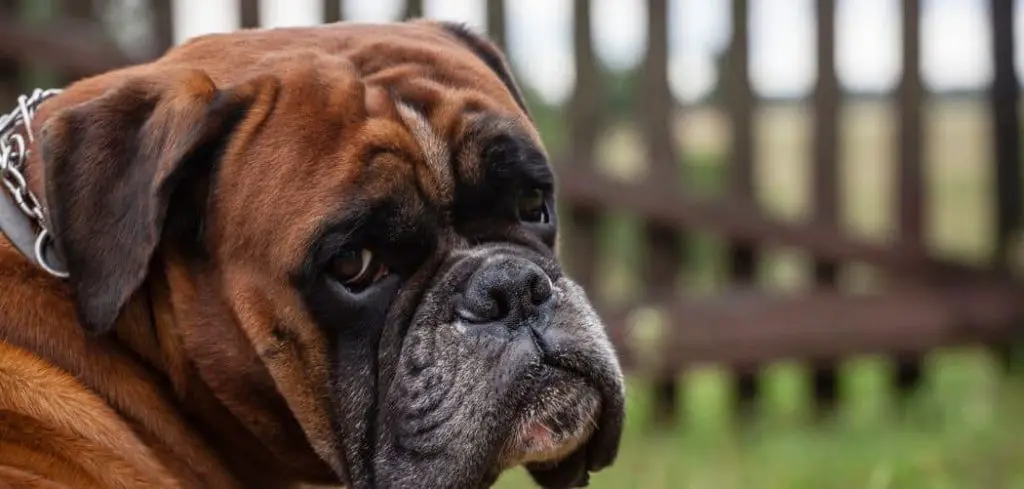If your dog only seems to get diarrhea when out on walks, it can be confusing and worrying.
A dog that appears fine at home but then develops loose stools once outside may be reacting to multiple possible triggers.
We outline the common reasons why dogs may have diarrhea on walks, what you can do, and when to seek veterinary help.
Dog Only Has Diarrhea on Walks — Why It Happens
Diarrhea that only happens during walks is often related to excitement, stress, diet, or underlying health issues. Dogs may become overstimulated while outside, react to environmental triggers, or feel anxious, which can affect their digestive system.
Other times, changes in exercise patterns or even eating something off the ground may upset their stomach.
It may also point to medical problems such as inflammatory bowel disease or infections that are aggravated during activity.

Dog Only Has Diarrhea on Walks: Common Causes
Excitement and Overstimulation
Some dogs get so excited during walks that their digestive system speeds up. Excitement releases hormones that can stimulate the intestines, leading to looser stools.
You might notice your dog straining several times during the walk or producing soft stools even though they seemed normal before leaving home.
Read more: Dog Only Has Diarrhea in the Morning (What it means)
Anxiety or Stress Triggers
Not all dogs enjoy walks. For some, certain environments, noises, or encounters with other dogs can cause stress. Stress hormones can disrupt the gut, leading to diarrhea.
If your dog seems nervous or tense outside, anxiety could be behind the problem.
Eating Things on the Ground
Dogs are natural scavengers and may nibble grass, sticks, or even trash while on walks. Eating something questionable can quickly upset their stomach and cause diarrhea during or right after the walk.
If your dog’s diarrhea is sudden and occasional, scavenging could be the cause.
Changes in Exercise and Gut Motility
Walking stimulates the bowels. Some dogs with sensitive digestive systems may have exaggerated responses, leading to diarrhea after exercise.
This can be more common in young or high-energy dogs that get very physically active during walks.
Food Sensitivities or Irritable Bowel Disease (IBD)
If your dog has a sensitive stomach or a chronic condition like IBD, walks may trigger diarrhea episodes. Activity, stress, or small dietary indiscretions can set off flare-ups.
Diarrhea linked with other symptoms like weight loss, vomiting, or chronic soft stools may indicate an underlying medical condition.
Parasites or Infections
Some parasites and bacterial infections may cause intermittent diarrhea, which could flare up during walks due to physical activity.
If your dog has recurring loose stools, especially with mucus, blood, or straining, a vet check and stool test are important.
What to Do If Your Dog Only Has Diarrhea on Walks
First, monitor your dog’s overall health. If they seem otherwise energetic, eating normally, and not showing other concerning symptoms, try making small adjustments.
Bring water on walks to prevent dehydration, since exercise can worsen fluid loss from diarrhea. Watch closely to prevent your dog from scavenging on the ground.
If excitement is the trigger, consider shorter or calmer walks until things improve. Adjusting their diet to include easily digestible, high-quality food can also help stabilize digestion.
Keeping a diary of when diarrhea happens can help you and your vet identify triggers more easily.
When to Call or Visit Your Vet
Contact your veterinarian if the diarrhea is frequent, severe, or lasts more than a couple of days. You should also call your vet if your dog shows other symptoms like vomiting, lethargy, blood in the stool, or weight loss.
Puppies, senior dogs, or dogs with existing health conditions should be seen sooner, as they can become dehydrated quickly.
A vet may run tests to check for parasites, infections, or underlying gastrointestinal problems. Chronic or recurring diarrhea should never be ignored, even if it only happens on walks.
Read more: Dog Only Has Diarrhea at Night (What it means)
Key Takeaway
If your dog only has diarrhea on walks, the cause could range from excitement or scavenging to stress or an underlying digestive issue.
Paying attention to patterns, preventing risky behaviors, and supporting their digestion at home can make a big difference.
But if the problem persists or your dog shows additional symptoms, seeking veterinary care is the best way to ensure their health and comfort.
